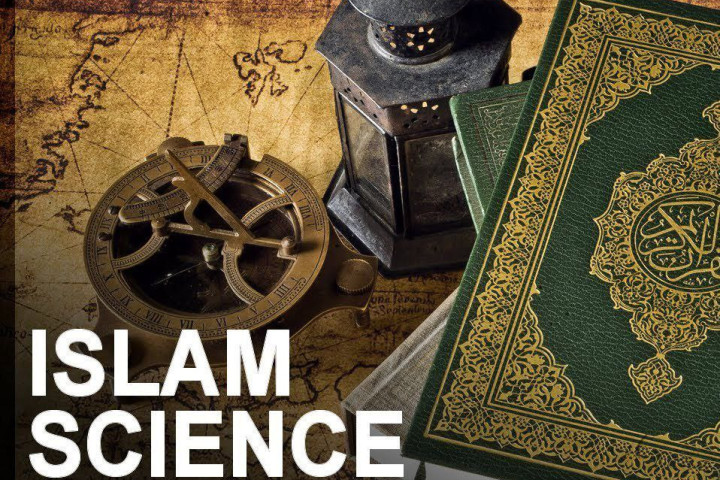
REVISITING TAUHIDIC SCIENCE
Dato‘ Dr. Mohd Yusof Hj Othman,
Institute of Islam Hadhari, Universiti Kebangsaan
Malaysia, Emeritus Prof. (PhD)
Introduction
After the death of Rasulullah (pbuh), Islam spread as far as the Mediterranean in the north, Central Asia and up to the Indus Valley in the east, and North African countries in the west. Apart from deepening the knowledge of Islam, Muslims also learn knowledge from the people in the countries who accept them well. These countries were once developed by the Greek and Byzantium Civilizations which were more advanced in science than the Muslims themselves. The same is true of the countries in the east that had already been developed by the Mesopotamian-Babylonian civilization; the country of Egypt developed by the Pharaoh’s civilization along the Nile Valley; and then to the countries in the Indus Valley. All these countries had already developed their civilization before the advent of Islam. During the mediaeval golden era, Muslims had developed their civilization from the eighth century to the sixteenth century.
The fall of Islam in Andalusia and Cordoba, Spain on January 1, 1492 caused one after another Islamic state colonized. The invaders also conquered Egypt, Iraq, Jordan, Syria, India, Pakistan, Bangladesh up until Malay Archipelago in the east. Finally, the fall of the Ottoman caliphate in Turkey in 1924.
During the golden age of Islam, Muslim scholars have explored various disciplines of knowledge such as science and technology, business and administration, economics and management, social, politics and leadership (Ibn Khaldun, 2006). In the field of science in particular, the names of Muslim scholars such as Jabir ibn Hayyan (721-813), Al-Khwarizmi (780-850), Ibn Sina (980-1037), Al-Biruni (973-1048), Ibn Haytham (965-1040), Ibn Rushd (1126-1198), Al-Jazari (1136-1206) and many more are the most popular names that are often mentioned as pioneers in their field of study. Many of them were polymath. Similarly, the terms algebra, chemistry, algorithms, sodium, camera, music, alembic apparatus, planetary names such as Mars, Jupiter, Saturn and various other terms were introduced by Muslim scholars.
Muslim scholars are also founders and pioneers in some aspects of science and technology. For example blood circulation in human body has already been described by Ibn an-Nafis (1213-1288) earlier than William Harvey (1578-1657); the concept of light moving in a straight line was already discovered by Ibn Haytham (965-1041) much earlier than Isaac Newton (1642-1727); Ibn Haytham also contradicted the opinion of previous scientists who said that the eyes emit light like a torchlight when looking at an object, instead of an object that reflects light to the eyes – this concept has been accepted until today; al-Biruni (973-1048) described the phenomenon of lunar and solar eclipses in astronomy much earlier than Galileo Galilei (1564-1642); even al-Biruni had managed to calculate the circumference of the earth much earlier and more accurately than scholars before Islamic civilization (al-Hassani, 2012). But Muslim scholars never contradicted their scientific study with the religious believe they embraced. In order to meet the needs of their religious duty, they developed science and technology. Science and technology only underwent a process of secularization in the period of Renaissance.
To ensure development based on Islamic principles, Muslim scholars and their leaders, together with the support of philanthropies, have taken the lead in developing the world’s leading educational institutions. The mosque is not only a place of worship but it is also an institution that develops Islamic educational system in various disciplines. They also developed the world’s first and foremost universities such as Ez-Zaitouna University in Tunis in 737 (the university was later closed in the sixteenth century due to war and reopened on April 24, 1956); Qarawiyyin University which was considered the first and oldest university in the world in 859 in Fez, Morocco; al-Azhar University in 972 in Cairo is considered as Sunni’s most prestigious university for centuries; and Sunkore University in Mali in 989. In 786, the caliph Harun Ar-Rashid established the Bait al-Hikmah (House of Wisdom) to translate the great works of the past prominent scholars in Greek and Byzantine times to Arabic so that contemporary scholars could study, analysed, criticized and further develop their knowledge to develop Islamic civilization (al-Hassani, 2012).
Tauhidic Science
When Muslims achieves independence, they are given the opportunity and freedom once again to develop their own country. Surely they want to return to the way of life inspired by their religious teachings that do not separate religious from the knowledge that allows them to manage their life. For example, in the Qur’an there are many verses describing scientific phenomena that call for the study of science and technology. According to Abdussalam (1995) there are more than 750 scientific verses in the Qur’an describing science and technology.
In the early stages they sought to restore knowledge on the basis of Islam – which they called the process of Islamization of knowledge because in Islam seeking knowledge is an obligation on every Muslim. There is a story that says once Prof Muhammad Abduh from al-Azhar University visited Paris. After his return to Cairo once he mentioned “When I went to Paris, I found Islam but without Muslims. When I returned to my country (Egypt) I found many Muslims but without Islam.” In addition, the emergence of other Muslim scholars such as Muhammad Iqbal, Maulana Maududi, Hassan al-Banna, Ismail Faruqi, Taha Jabir al-Awani, Syed Muhammad Naquib al-Attas and others have led to the Islamic reform movement that contributed to the process of Islamization of knowledge.
The thing that caught their attention was the secular education system brought by the colonialists (Syed Muhammad Naquib al-Attas, 2020). To the secular scholars, religious knowledge is limited to the development of ritual practices, while Islam is a religion that covers the entire system of life (nizam al-hayah). The main issue they are trying to work on is how to have an education system that covers all aspects of life as a Muslim. In other words, how to develop an education system that can integrate the science of ‘religion’ with the science of ‘worldly’ matters in a comprehensive manner.
In the field of science, Islamic science education was introduced. The science (from a secular perspective) referred to here is the science that studies the nature by systematic, rational and objective observation based on scientific methods to accumulate trustworthy knowledge. But there are also those who view ‘Islamic science’ which can be translated into Arabic as ‘al-ulum al-islami’ which carries a different meaning, namely the science of Islam.
Thus, the term is further refined by introducing the term ‘Tauhidic science’, which means science based on the concept of Tauhid as taught by Islam. Keep in mind that in Islam, Muslim scholar never separated science and religion. Both are integratively needed which is understood in a broader context.
In Malaysia, some universities offer History and Philosophy of Science course which also discusses the history and philosophy of Islamic science; course on Ethics in Science and Technology activities, and my own university offers an Introduction to Tauhidic Science course. In secular science education the two main entities in the development of scientific knowledge are ‘man’ and ‘nature’. Humans study the characteristics of nature systematically, rationally and objectively to increase their knowledge of this nature. His knowledge is constantly evolving. In the contemporary science, the entity of God is not incorporated in the subject.
In Tauhidic science, the entity of God is highly emphasized and incorpprated. Thus in Tauhidic science there are three basic entities which have to be considered; God, man and nature. The relationship between these three entities needs to be understood by Muslim scientists. God is the Supreme Creator who created everything. Man is the caliph of Allah who is given the trust and responsibility to manage and govern this universe (alam) in a limited way. While the nature has certain natures that can be learned by humans, and follow sunnatullah and follow the command of God.
Developing Tauhidic Science
The idea of Islamization of knowledge is not new. As stated above, once Muslim countries gained independence they sought to restore the glory of Islam to their respective countries in all aspects of their personal live and national interest. In 1976, Rabitah al-alam al-Islami, based in Mecca hosted the Islamic Festival and Conference in London. Many well-known Muslim figures attended the festival and conference.
Two aspects that were highly emphasized at that time were the integration of knowledge and the concept of Islamic epistemology that would be used in education system. Muslim scholars need to review the concepts and philosophies of knowledge and education that they understood before in the secular perspective. We need to return to the main purpose of science, which is to find the truth and be responsible to God Almighty. Philosophy (love of wisdom) needs to be returned to its original meaning. Wisdom is not just a rationalization process that only focuses on IQ (Intelligent Quotient). But more than that it needs to involve EQ (Emotional Quotient) and SQ (Spiritual Quotient) integratively. In Islamic perspective, SQ is not only the intelligence of understanding the meaning of a scientific phenomenon, but must also involve the intelligence of ‘aqeedah’, the intelligence of syariah and the intelligence of adab and akhlak (ethics).
Conclusion
This paper does not intend to discuss in detail how to restore the greatness of knowledge in the golden era of Islamic civilization in the past. What needs to be emphasized is that in the past Islamic era, three main entities, God, man and nature were the main entities as the basis for the development of knowledge. Today western scholars succeed in developing civilization by disregarding the entity of God. As a result, there are paradox in our development; we develop our environment, but we ‘kill’ human beings; we talk about utopian community, but we neglect our souls and spiritual needs; we talk about information and communication technology, but we produce humans who are unable to communicate with their own parents properly; we want to progress but we destruct our environment; we successfully manage our world, but failed to manage to get to the Hereafter.
References
1. Abdus Salam, 1995. Islam and Science: Concordance or Conflict. https://www.alislam.org/library/articles/Islam-and-Science-Concordance-or-Conflict.pdf - Assess on 18 Dec 2018.
2. Ibn Khaldun, 2006. Mukadimah. Kuala Lumpur, Dewan Bahasa dan Pustaka.
3. Salim T.S. al-Hassani, 2012. 1001 Inventions: The Enduring Legacy of Muslim Civilization. (3rd Ed). London, National Geographic Society.
4. Shabeer Ahmad, 2008. Development of Science & Technology in Islamic History. Riyadh, Darussalam Publishers.
5. Syed Muhammad Naquib al-Attas, 2020. Islam dan Sekularisme. Kuala Lumpur RZS-CASIS & HAKIM.
Additional Information


-middle.jpg)
 O`Z
O`Z
 РУ
РУ
 EN
EN
 العربية
العربية

Notes